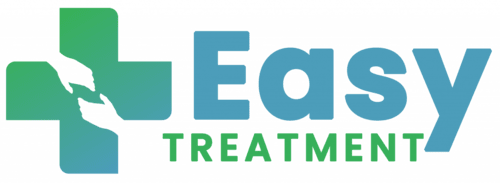Every woman deserves the right to understand her body, yet conditions like PCOS (Polycystic Ovary Syndrome) and PCOD (Polycystic Ovarian Disease) often leave many feeling confused and unsure about their health. These aren’t merely medical terms—they represent significant challenges that impact a woman’s physical and emotional well-being, affecting everything from self-confidence to life goals.
For a woman experiencing irregular periods, unexplained weight gain, or fertility struggles, the emotional toll can feel overwhelming. The societal stigma surrounding reproductive health often compounds this, leaving many women to navigate their conditions in silence. This silence fosters uncertainty, not just about the conditions themselves but also about how to seek help or even discuss them openly.
Recognizing the difference between PCOS and PCOD isn’t merely about understanding medical jargon—it’s about empowerment. It’s about providing women with the tools to reclaim control over their health, make informed decisions, and prioritize their well-being. These distinctions are vital because while the symptoms may overlap, the treatment approaches and potential long-term health impacts vary greatly between the two conditions.
A lack of awareness about PCOS and PCOD can delay diagnosis, allowing these conditions to affect various aspects of a woman’s life—her energy levels, relationships, and even career. Education and early intervention are crucial. By understanding the root causes, women can actively participate in shaping their treatment plans, whether through lifestyle changes, medical intervention, or emotional support systems.
This blog bridges the gap between confusion and clarity. By shedding light on the nuances of PCOS and PCOD, the aim is not just to inform but to inspire women to take proactive steps toward their health. Every woman deserves to feel in control of her body, and that starts with fostering a culture of awareness, compassion, and actionable solutions.

Diving Deeper: What Are PCOD and PCOS?
PCOD: A Lifestyle-Driven Condition
PCOD occurs when ovaries produce immature eggs that develop into cysts, disrupting hormonal balance. While less severe than PCOS, it can cause:
- Irregular menstrual cycles, often accompanied by heavy or scanty periods.
- Bloating and weight gain, particularly around the abdomen.
- Difficulty in conceiving, although fertility treatments often have high success rates.
This condition is closely tied to poor lifestyle habits such as a high-carb diet, lack of physical activity, and chronic stress. Fortunately, lifestyle changes—like adopting balanced nutrition and regular exercise—can reverse most symptoms.
PCOS: A More Complex Endocrine Disorder
PCOS is not merely a condition of the ovaries—it’s a systemic endocrine disorder. It often involves:
- Excess androgen production, leading to symptoms like excessive hair growth and male-pattern baldness.
- Severe insulin resistance, making weight management and blood sugar regulation difficult.
- Anovulation or irregular ovulation, contributing to significant fertility challenges.
Unlike PCOD, the origins of PCOS are multifaceted, involving genetic predispositions, inflammation, and environmental factors. PCOS isn’t just a condition to manage—it’s a battle to mitigate its long-term risks like diabetes, cardiovascular disease, and endometrial cancer.
Symptoms and Key Differences
Both PCOS and PCOD share overlapping symptoms, but the severity and implications vary dramatically. Here’s how they differ:
Menstrual Patterns
- PCOD: Irregular but present menstruation.
- PCOS: Often results in completely absent periods (amenorrhea).
Weight and Metabolism
- PCOD: Gradual weight gain, which can be reversed with effort.
- PCOS: Severe metabolic resistance makes weight loss exceptionally challenging.
Fertility
- PCOD: Pregnancy is generally achievable with minimal medical intervention.
- PCOS: Fertility treatments are often necessary due to disrupted ovulation.
Understanding these differences between PCOS and PCOD is vital for seeking the right care.

PCOD: Unhealthy Habits as Triggers
The condition largely stems from:
- High-sugar diets, which spike insulin levels and disrupt ovarian function.
- Prolonged stress, increasing cortisol and aggravating hormonal imbalances.
- Physical inactivity, reducing overall metabolic efficiency.
PCOS: A Complex Web of Factors
PCOS has more intricate origins:
- Genetic Factors: If your mother or sister has PCOS, you’re at higher risk.
- Insulin Resistance: High insulin levels stimulate excess androgen production, disrupting ovulation.
- Chronic Inflammation: This low-grade inflammation worsens hormonal dysfunction and metabolic issues.
By addressing these root causes, you not only manage symptoms but also reduce long-term health risks.
PCOD Diet Chart: A Key to Wellness
Creating a PCOD diet chart can be a game-changer. Here’s a sample plan:
Morning: Warm water with lemon followed by a high-protein breakfast like scrambled eggs or Greek yogurt with seeds.
Mid-morning: A handful of nuts like almonds or walnuts.
Lunch: Whole-grain chapati, grilled chicken/fish, and a green leafy vegetable.
Evening Snack: A bowl of fruit or a smoothie with no added sugar.
Dinner: Quinoa salad or grilled tofu with vegetables.
Tips: Avoid sugary snacks, fried foods, and processed items. Choose whole grains and foods rich in omega-3s.
Diagnosis: Breaking Down the Myths
For many women, getting a diagnosis is the hardest part. Both PCOD and PCOS are underdiagnosed due to overlapping symptoms and lack of awareness.
Diagnostic Tools Include:
- Blood Tests: To measure androgen levels, blood sugar, and insulin.
- Pelvic Ultrasound: To detect cysts and assess ovarian health.
- Detailed Medical History: Understanding family and personal health patterns.
Early diagnosis is the key to successful management, so don’t delay seeking medical advice if you experience persistent symptoms.
Treatment Approaches: Personalized and Practical
Managing PCOD
Lifestyle changes can yield remarkable results. Here’s how:
- Nutrition: Focus on a diet rich in whole grains, lean proteins, and healthy fats.
- Exercise: Regular physical activity, like yoga or strength training, helps regulate hormones.
- Stress Management: Meditation and breathing exercises can significantly lower cortisol levels.
Tackling PCOS
PCOS requires a more targeted approach:
- Medications like metformin to combat insulin resistance.
- Specialized fertility treatments for those trying to conceive.
- Long-term monitoring to reduce risks of diabetes and heart disease.
A Journey to Health and Empowerment
Understanding the PCOD PCOS difference empowers women to take charge of their health. With awareness, early diagnosis, and proper treatment, women can lead healthier, more fulfilling lives.
At Easy Treatment India, we simplify the journey with expert consultations, personalized care plans, and unwavering support. Contact us today to reclaim control over your well-being!
How Easy Treatment Can Help
At Easy Treatment India, we offer:
- Expert Consultations: Access to top gynecologists and endocrinologists nationwide.
- Personalized Plans: Custom-tailored PCOD diet charts and PCOS management strategies.
- Continuous Support: Assistance throughout diagnosis, treatment, and post-care.
Your health journey doesn’t have to be isolating. We simplify complex processes, making healthcare accessible and empowering.

